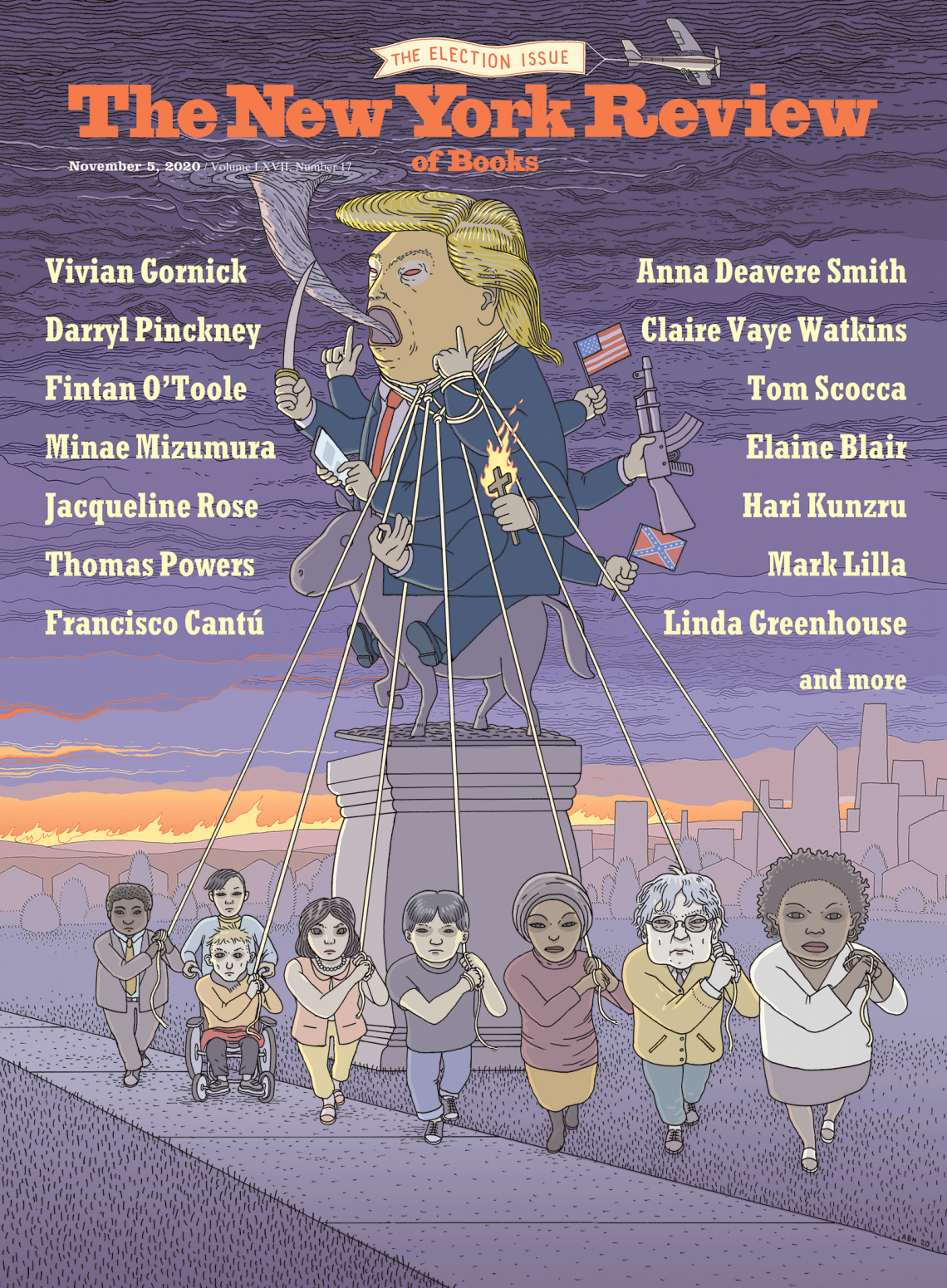It’s been four years now and you have not been yourself. You were no more prepared for Donald Trump’s election than anyone else was. It left you stupefied and outraged. It also left you with an unwelcome sense that you no longer knew your country.
You had grown accustomed to the right-wing road-rage media, though you never watched or listened to it. You knew the cast of characters from the Reagan and Bush years, and still fumed against those responsible for the Iraq wars. You knew that a significant chunk of the white working class had moved from left to right over the years, joining evangelicals, right-to-lifers, and gun fanatics as part of the Republican base. You had even read articles that tried to explain why that happened.
But the surge for Trump that carried him over the top didn’t come from the right. It came from below, from some dark American id you had no access to. The moment Trump took office your life changed. You followed the press conferences, which were unlike any you had ever seen. They felt like daily beatings, but still you submitted to them. You read the torrent of tweets coming out of the White House and watched the Saturday Night Live parodies, and shared the funniest ones with friends. Until they no longer seemed so funny. You obsessively checked MSNBC and Democracy Now! and Twitter, passing untold hours with people who were just as appalled and obsessed as you were. The Mueller investigation began and you were transfixed. Later, the impeachment trial. Both fizzled out without anything changing. The hyenas howled in celebration and the outrages continued. You slept badly.
Then, at a certain point, you gave up. You were tired of every conversation turning to Trump and everyone agreeing. Yes, even unanimity came to seem an embarrassing badge of impotence. The Republican Party, including members who had denounced Trump during the 2016 primaries, followed him zombie-like on his pillage-and-burn mission. Why? You had no idea. A pandemic hit the country, threatening their constituents, and they played it down. They promoted crackpot theories and medicines, and proudly went maskless in public. That was when you learned the useful term “vice signaling.” A group of armed jackasses in camouflage fatigues descended menacingly on the Michigan State Capitol to protest a mask mandate and roamed the marble halls with their assault rifles, unperturbed by the state police. Again, why? Fuck you, the mob explained.
On your laptop you saw a Black man, George Floyd, murdered by a police officer. You were aware that these things happened, but now you knew it in the marrow of your bones. And I was ashamed that it took me this long to get it. (Sorry, I meant “you.”) You were surprised and heartened to see Americans from every walk of life down in the streets to voice their disgust. Young people, old people, couples with kids in strollers. You were stunned that the protests actually forced a response by mayors and police chiefs across the country. Something was moving, and in the right direction. America, it seemed, was finally ready to address this. So you wondered whether you had been wrong about your country, whether the past four years in your little media bubble had skewed your vision.
Then you stopped wondering. Marches soon led to riots and looting by people demanding that the police be defunded—a performative contradiction, a philosopher might say; nihilistic left-wing goons, mainly white, it appeared, infiltrated the marches and attacked police; nihilistic right-wing goons, all white, came out with guns to do battle with them; people died; cops decked out in absurd military gear randomly cracked heads, drove into crowds, and dragged people into unmarked cars; the president cynically threatened to intervene; a senator wrote an op-ed supporting the idea; the opinion editor at The New York Times was fired for publishing it; major institutions felt compelled to make statements about racial justice; people clashed over what to say, tempers rose, and intellectual marines launched an assault on a citadel of the New Jim Crow: the Poetry Foundation in Chicago, Illinois. In the early Sixties white college students traveled to the South, risking their lives to defend African-Americans’ voting rights. Today they safely scream at white adults in northern restaurants, ordering them to raise their fists in solidarity with a slogan.
What demons are at work here? You don’t know. But at least you know you don’t know. That’s a start. That’s where doctors begin when trying to diagnose patients with bizarre symptoms that may indicate a fatal disease. They distrust theories and try to see what they see. They go slow and keep their wits about them. That is your most precious possession right now: your wits. Try not to lose them.
Advertisement


